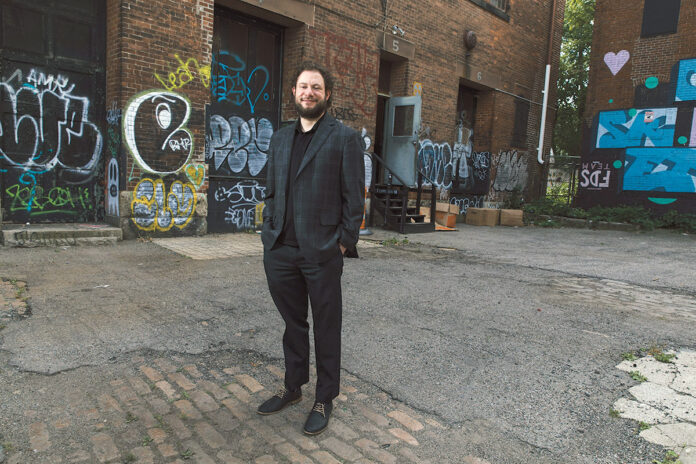
PBN INNOVATIVE COMPANIES 2020 NONPROFITS
The Capital Good Fund
INSPIRED BY THE CONCEPT of microlending as a social justice tool, Andy Posner turned his Brown University master’s degree thesis into The Capital Good Fund in 2009. Since then, his Providence-based community-development nonprofit institution has financed more than 5,500 small personal loans totaling $11.4 million.
Borrowers – many of whom have poor or no credit and would not qualify for a standard bank loan – often use the funds to meet critical needs, including immigration expenses, vehicle purchases, or repairs and down payments on homes.
“There’s really not another nonprofit lender that does what we do,” Posner said.
For many, Capital Good Fund offers a much-needed alternative to predatory lending options, including payday loans, which in Rhode Island can require an annual percentage rate of up to 268%.
![]() The fund approves or denies loan applications based upon an “ability to pay” test that relies heavily on a client’s average daily bank balance. In all, it green-lights about 40% of applications, and there is a 95% repayment rate.
The fund approves or denies loan applications based upon an “ability to pay” test that relies heavily on a client’s average daily bank balance. In all, it green-lights about 40% of applications, and there is a 95% repayment rate.
As a lender, Capital Good Fund reports successful payments to all credit bureaus, “so if people pay us back, they build their credit,” Posner said.
Posner’s operation, which provided $3 million worth of loans last year and has 37 employees, is growing rapidly. After several years of lending only in Rhode Island, it now serves Delaware, Florida, Illinois and Massachusetts, and will expand into Texas this fall.
This year, the nonprofit found itself uniquely positioned to help those in need of cash as a result of the COVID-19 pandemic. In response, it rolled out a new crisis relief loan program, which offers a lower-than-typical 5% interest rate, expedited processing, a deferment period and underwriting based on pre-crisis income. So far, it has closed more than 500 such loans. Clients have used the money to pay for groceries, rent and Wi-Fi for children attending school remotely.











